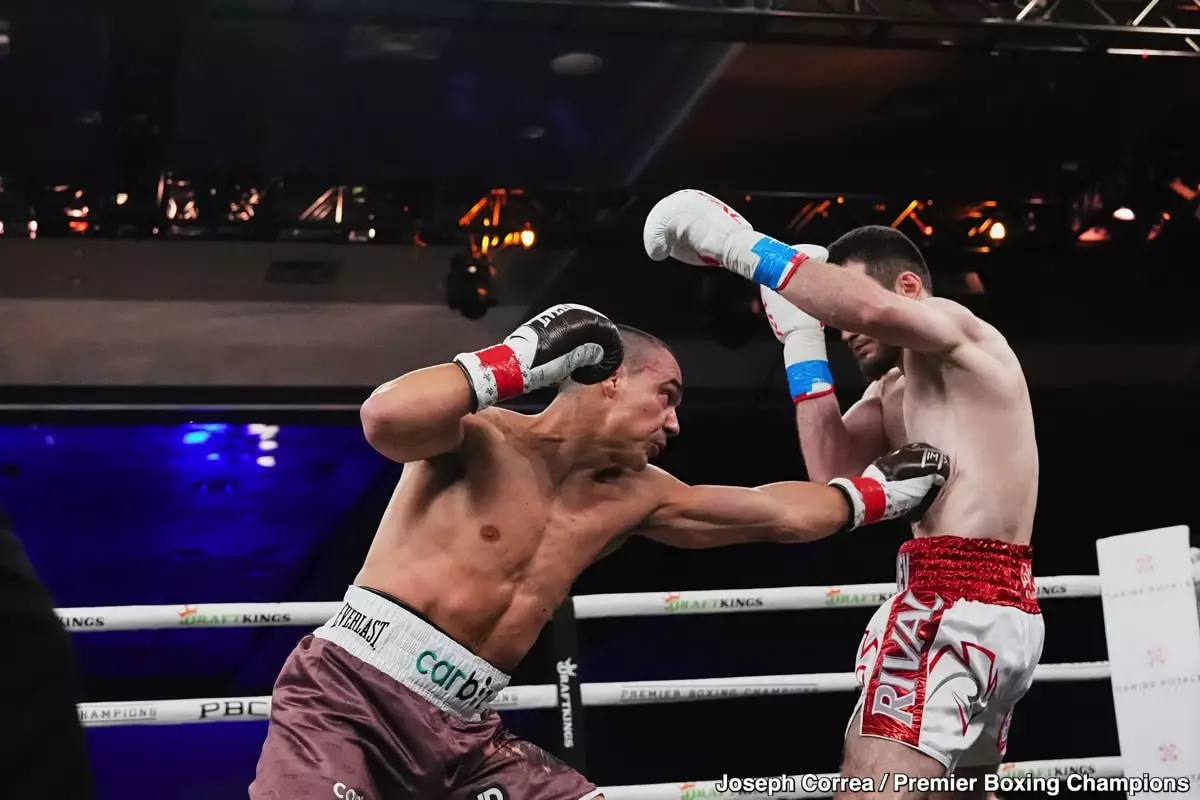In the competitive world of professional boxing, strategic match-making plays a crucial role in defining a fighter’s career trajectory. Recently, the decision by Tim Tszyu to face Bakhram Murtazaliev for the IBF junior middleweight title has stirred significant debate, especially following Tszyu’s disappointing third-round TKO loss. Sergio Mora, a former champion and commentator, has attributed this loss to what he describes as “bad matchmaking.” Mora’s perspective raises essential questions regarding the ethics of fight arrangements and the nature of risk-taking in boxing.
The bout took place at the Caribe Royale Resort in Orlando, Florida, and was Tszyu’s return to the ring after a mentally taxing defeat at the hands of Sebastian Fundora. Mora suggests that Tszyu’s choice to immediately face Murtazaliev, a formidable opponent with an unblemished record of 23-0 and a reputation for power, was reckless. The timing, especially after Tszyu’s prior loss, poses questions about the wisdom of such a fight at a pivotal moment in his career. A more cautious approach might have involved taking on a less dangerous opponent to rebuild confidence and momentum.
Mora’s remarks have sparked backlash from boxing fans, who argue that his protective stance promotes a culture of “cherry-picking” within the sport. This trend, they claim, undermines the credibility of boxing and makes it less appealing compared to mainstream sports like football and basketball. Fans are advocating for a shift away from this mindset, urging fighters and promoters alike to embrace more 50-50 match-ups that excite audiences and contribute to the sport’s growth. The reluctance to fight top-tier opponents has long been perceived as detrimental to boxing’s viability as a sport.
The essence of Mora’s criticism also extends to a reflection on risk versus reward in boxing. With aspirations of negotiating lucrative upcoming fights against renowned names like Terence Crawford or seeking redemption against Fundora, fighting Murtazaliev for the IBF belt seemed more like a gamble than a strategic move. The lure of the belt is understandable, but one should evaluate whether the potential rewards justify the risks involved.
In contrast to Mora’s cautious perspective, it is worth considering that Tszyu’s decision to confront an undefeated and powerful competitor in Murtazaliev could be framed as an act of bravery. Many champions have faced formidable challenges to assess their strengths and resilience. Craig Jones, the renowned boxing coach, often emphasizes how testing one’s metal against the best can lead to growth, both as an athlete and as a professional. Tszyu’s courage to face a recognized threat that many peers avoided is honorable, highlighting a significant aspect of the sport—valor.
That said, Mora’s critiques do raise valid points about the overall strategy of a boxer who has recently encountered a setback. Indeed, why would a top contender like Terence Crawford choose a less dangerous opponent over Murtazaliev? The avoidance indicates a shared consensus among elite boxers regarding the risks posed by challenging fighters, especially after a prior defeat. Such reflections showcase the inherent tension between fight dynamics and the imperative for financial security in professional boxing.
The repercussions of Tszyu’s loss to Murtazaliev might extend beyond the ring, influencing his career path profoundly. As fans and analysts critically assess his decisions, the need for adaptive strategies in future fights becomes apparent. The boxing community must weigh the merits of risk against potential ruin, especially for fighters like Tszyu, who grapple with the pressures of expectations and championship aspirations. In the end, effective matchmaking that balances challenge with the fighter’s readiness is vital for longevity and success within this ruthless sport. Tim Tszyu’s next steps will undoubtedly shape his legacy, but for now, the echoes of cautionary tales from seasoned veterans like Mora remind us of the high stakes involved in professional boxing.

